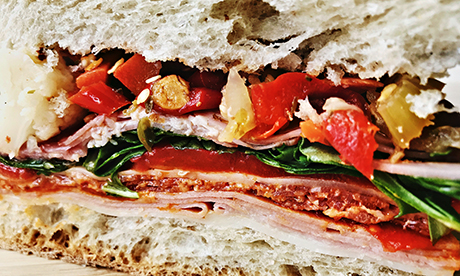Often we hear some Catholics speak of other Catholics as cafeteria Catholics.
This is often a subtle criticism of those who appear to pick and choose from the cafeteria food booth what they want, leaving behind the distasteful or uninviting parts of the menu.
The term gives the impression of a person not serious about their faith, one who selects what is easy to digest and avoids the harder elements.
Yet I would argue that we all are cafeteria Catholics.
In its 2,000-year history, global reach and ‘big tent’; we all are picking and choosing from the vast menu of Catholic theology, thought and practice.
Our choices are reflected in the parish we attend, the books we read, the causes we support, the votes we cast, the political parties we join and the popes we prefer.
All Catholics make choices.
- Do we read Thomas Merton’s Seven Storey Mountain or Scott Hahn’s Rome Sweet Rome?
- Do we support migrants at the border or march in Right to Life rallies?
- Are we members of a Catholic Worker house or the Knights of Columbus?
- Is Black Lives Matter an atheist leftist formation as some bishops assert, or a legitimate protest as other bishops see it?
- Are we aligned with Tyler, Texas, Bishop Joseph Strickland or San Diego Cardinal Robert McElroy? Benedictine Sr Joan Chittister or the late Poor Clares Mother Mary Angelica, founder of EWTN?
- Former House Speaker Nancy Pelosi or San Francisco Archbishop Salvatore Cordileone?
A beauty and strength of the Catholic Church is our big tent.
At some non-Catholic churches I have attended, it is obvious political perspectives are very much aligned.
I have been to Catholic parishes where it is just as obvious theological and political views represent the centre, left or right.
Whether we are conservative or progressive,
traditional or liberal,
the banquet is still open.
Our ongoing question should be:
Are we done choosing from the menu,
or are we still feasting?
The main issue is not whether we are cafeteria Catholics but whether we are still feasting at the banquet.
Psalm 23 reminds us our cup is overflowing.
In the Gospel of John, Jesus tells his friends, “I have many more things to say to you.”
That Gospel also reminds us “of his fullness we have received, grace upon grace.”
The writer of Ephesians prays that we all have the “strength” to comprehend the love of Christ and be “filled with the fullness of God.”
Spanish poet and mystic John of the Cross wrote in his poem “The Spiritual Canticle” that if you gather together all that the saints and holy people have learned of God over the centuries, the “greater part” remains to be unfolded.
A question we must ask then, no matter our current theological, social and political perspectives: Is that all God has to say to us, or is there more?
Are there “many more things,” is there “grace upon grace” and are we filled yet with God’s fullness?
Jesus told Nicodemus that the Holy Spirit is like the wind — we hear the sound of it, but we do not know where it has been, or where it is going.
To say we know it all and we hold all truth is to undermine the freedom and liberating energy of the Holy Spirit.
Our “truths,” as we know them, are partial and in constant need of expansion and change.
If someone says they fully understand what God has revealed, I suggest such a view is unbiblical and against Catholic teaching.
The late Swiss priest, author and theologian Hans Küng wrote in The Church Maintained in Truth that just as grace overcame sin, the Gospel truth shines more brightly as it corrects our errors.
Küng suggested we are “corrected” to the extent we are open to the Holy Spirit. Küng wrote, “God’s Spirit is under no law other than that of his own freedom; no justice other than that of his own grace; under no power other than that of his own fidelity. … The Church does indeed try continually to take over the Spirit, but it cannot ‘possess’ him, cannot control, restrain, direct or master him.”
Vatican II is a prime example of our collective choosing. Continue reading
Additional readingNews category: Analysis and Comment, Great reads.




